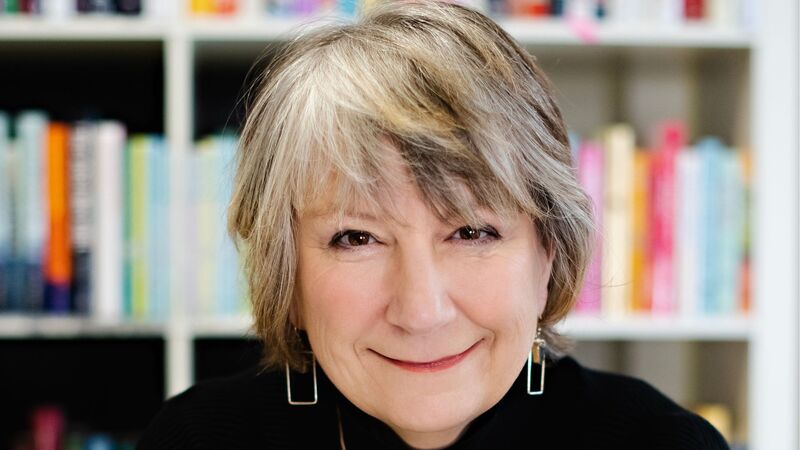You are viewing your 1 free article this month. Login to read more articles.
Digital publisher Endeavour Press moves into print
Independent e-book publisher Endeavour Press is branching out into physical book publishing with the launch of a new imprint, Endeavour Ink.
Matthew Lynn, who co-founded Endeavour Press with Richard Foreman, said the stabilisation and growth of the print market was behind the move.
While still "growing fast”, the e-book market has "settled down" in terms of the migration of print readers to digital, Lynn observed. Instead, the growth is now driven by different kinds of people simply reading more, he said.
"I always say a book is a book, it doesn’t make much difference whether it’s a print book or an e-book, it’s fundamentally a book,” he said. “But obviously there’s a huge chunk of the market that still reads physical books, and for our authors we want to serve that bit of the market as well. So we are pushing out into physical. I think it was always part of the long-term game plan to be a full publisher, and that means digital and print.”
Endeavour's print division will launch in March with an initial offering of six new titles commissioned specifically for Endeavour Ink.
The launch titles are largely by writers of historical fiction and crime and include J D Davies and Richard Woodman, with historical naval fiction; Alison Joseph, with an Inspector Malone crime thriller; David Boyle, capitalising on the recently renewed interest in Bletchley Park since "The Imitation Game" with an historical crime thriller set in the area; Michael Arnold, with historical fiction featuring Thomas Becket; Richard Herman, with a special ops thriller set in South China Sea; and Sarah Gristwood, with an historical novel called The Last Mary.
The publishers will sign new authors for its print division, because "it's a slightly different offer", Lynn said. However, it will also publish some of its bestselling digital authors in print too, such as Marjorie Bowen's The Poisoners, Ronald Bassett's The Tinfish Run, Thomas Laird's Cutter, William J Lovejoy's Delta Blue, Sally Spencer's Blackstone and the Rendezvous with Death, Deborah Swift's Shadow on the Highway and co-founder Foreman's own Augustus: Son of Rome.
Endeavour Press currently publishes 25 digital titles a week and has a 3,000 title-strong backlist. It aims to commission two print titles a month, equating to roughly 25 print titles a year. The company has grown in the past three months from six to eight members of staff, in part preparing for its print imprint. However, Lynn says it aims to stay "lean" and "nimble". The company’s sales through the Kindle store totalled £2.2m for roughly 1.5m books for the financial year ending October 2016.
Its success to date largely stems from its "constant" promotion of backlist, Lynn said. "One of our mantras in digital is there are no new and old books. We make no distinction between front and backlist. Every book’s a new book to someone who hasn’t read it. We relentlessly re-promote books; we have about 3,000 books on our list and they’re all re-promoted on a constant basis. That works really well because most people haven’t read most books," he said.
The company is looking forward to working with booksellers, who Lynn said were "hugely important", as well as non-traditional retailers. Commissioning for its print list will aim to be "innovative" and "slightly different".
"Our take on it is always to think what are the big publishers doing and to turn it upside down,” Lynn said. “We’re still primarily going to be a digital publisher - most of our focus will be on the Kindle store and doing books for the e-book market - but where we see the opportunities and the space doing some of those books for the print market as well," he said. "Many of the new books we will be publishing will be because we think also they will have great e-book sales. The mind-set is always digital first, which will hopefully give us a slightly different perspective."
Lynn said the e-book market was still growing “very fast”, with Endeavour Press’ digital sales up 100% last year. “But what I think has happened is that the print market has stabilised,” he said. “It has stabilised and is growing again, by about 3% or 4%. The e-book market is still growing as far as we can see, very fast, but it’s growing in different places. Where e-books are growing is not people switching from print. If you go back three years, there were lots of people thinking ‘oh I like e-books, I’m not going to go to WH Smith to buy a paperback anymore, I’m going to buy the Kindle book instead’. I think that kind of migration has stopped.
"Where the e-book market has grown, it’s people reading more. Kindle readers - these are new types of people. The book trade has always been interested in people who buy one or two books a week, but there's an awful lot of people who buy three or four books a year, and a lot of those people are now moving up to six books a year. And that is new territory."
The move follows a wave of optimism for the survival of print, with sales last year up 4.9% to £1.591bn on 195.1m copies sold (+2.3%). Using data supplied by the UK's top five trade publishers, The Bookseller meanwhile estimated e-book sales for the entire UK market dropped by 5.1% last year to 81.6 million copies sold.












